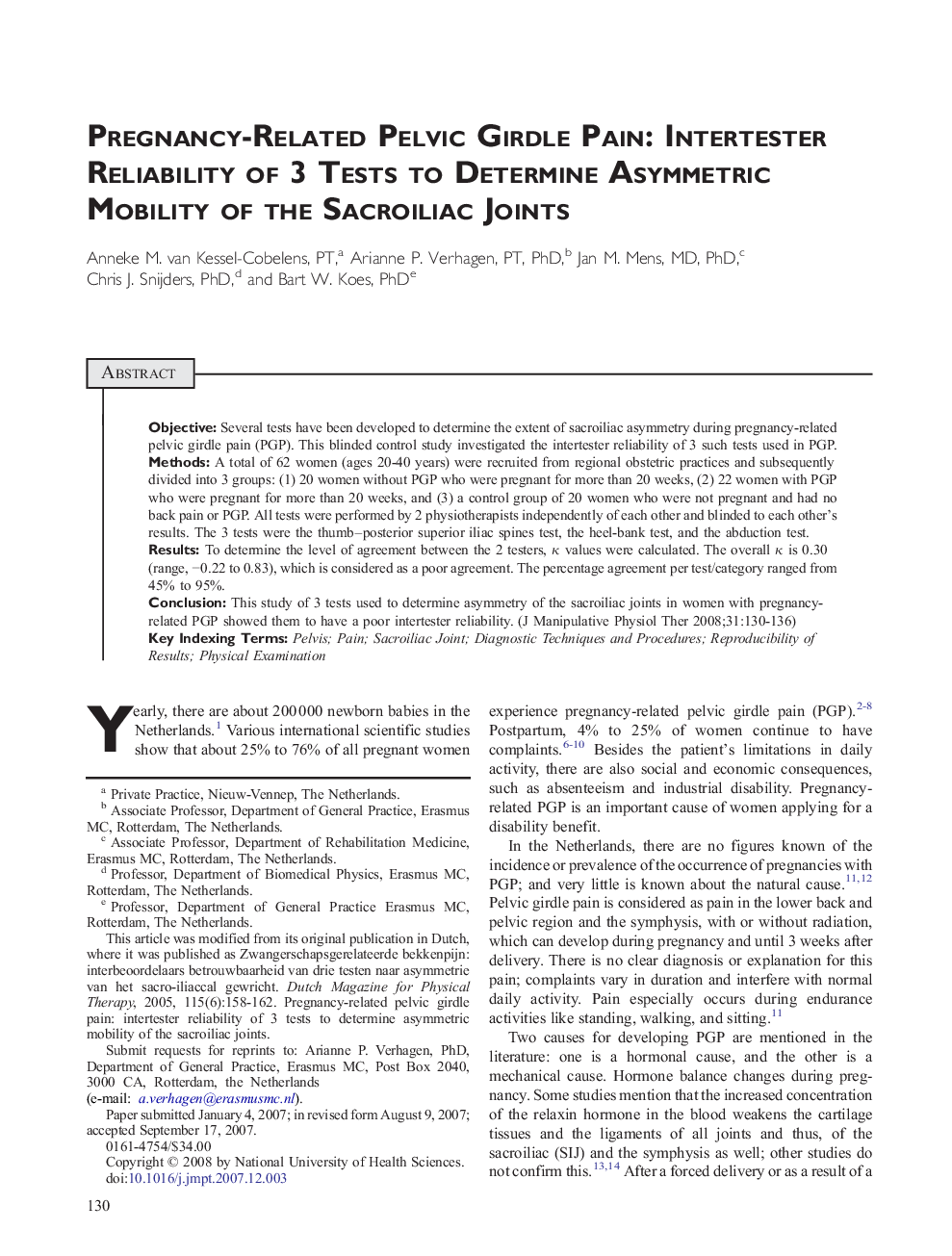| Article ID | Journal | Published Year | Pages | File Type |
|---|---|---|---|---|
| 2621136 | Journal of Manipulative and Physiological Therapeutics | 2008 | 7 Pages |
ObjectiveSeveral tests have been developed to determine the extent of sacroiliac asymmetry during pregnancy-related pelvic girdle pain (PGP). This blinded control study investigated the intertester reliability of 3 such tests used in PGP.MethodsA total of 62 women (ages 20-40 years) were recruited from regional obstetric practices and subsequently divided into 3 groups: (1) 20 women without PGP who were pregnant for more than 20 weeks, (2) 22 women with PGP who were pregnant for more than 20 weeks, and (3) a control group of 20 women who were not pregnant and had no back pain or PGP. All tests were performed by 2 physiotherapists independently of each other and blinded to each other's results. The 3 tests were the thumb–posterior superior iliac spines test, the heel-bank test, and the abduction test.ResultsTo determine the level of agreement between the 2 testers, κ values were calculated. The overall κ is 0.30 (range, −0.22 to 0.83), which is considered as a poor agreement. The percentage agreement per test/category ranged from 45% to 95%.ConclusionThis study of 3 tests used to determine asymmetry of the sacroiliac joints in women with pregnancy-related PGP showed them to have a poor intertester reliability.
